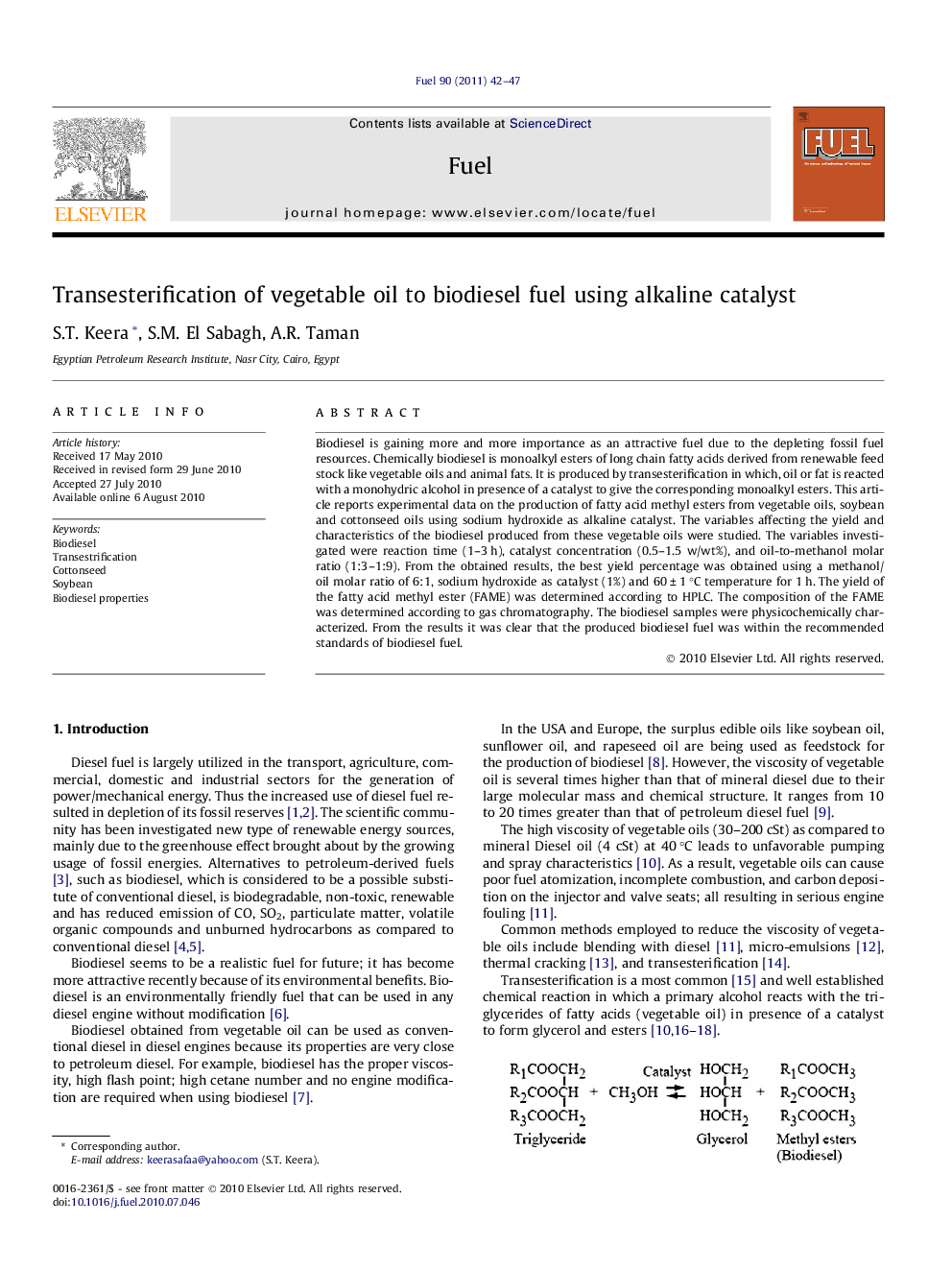| Article ID | Journal | Published Year | Pages | File Type |
|---|---|---|---|---|
| 206934 | Fuel | 2011 | 6 Pages |
Biodiesel is gaining more and more importance as an attractive fuel due to the depleting fossil fuel resources. Chemically biodiesel is monoalkyl esters of long chain fatty acids derived from renewable feed stock like vegetable oils and animal fats. It is produced by transesterification in which, oil or fat is reacted with a monohydric alcohol in presence of a catalyst to give the corresponding monoalkyl esters. This article reports experimental data on the production of fatty acid methyl esters from vegetable oils, soybean and cottonseed oils using sodium hydroxide as alkaline catalyst. The variables affecting the yield and characteristics of the biodiesel produced from these vegetable oils were studied. The variables investigated were reaction time (1–3 h), catalyst concentration (0.5–1.5 w/wt%), and oil-to-methanol molar ratio (1:3–1:9). From the obtained results, the best yield percentage was obtained using a methanol/oil molar ratio of 6:1, sodium hydroxide as catalyst (1%) and 60 ± 1 °C temperature for 1 h. The yield of the fatty acid methyl ester (FAME) was determined according to HPLC. The composition of the FAME was determined according to gas chromatography. The biodiesel samples were physicochemically characterized. From the results it was clear that the produced biodiesel fuel was within the recommended standards of biodiesel fuel.
